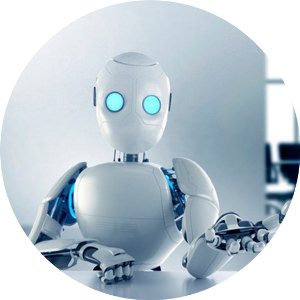If you haven't been looking for a job in recent years, things have changed and will continue to change thanks to Artificial Intelligence (AI).

According to a survey conducted by Korn Ferry Global, 63% of respondents said that artificial intelligence has changed the way recruitment occurs in their organisation. Not only do candidates have to walk through human doors when looking for a new job, but they also have to pass the artificial intelligence exam, which continues to become increasingly sophisticated. Recruiting and hiring new employees is an expensive activity for organizations. Therefore, they seek to do everything possible
to find candidates who will be valuable employees in the long term for a good return on their recruitment investment. Here are some points that candidates and organizations should keep in mind when AI is integrated into the job search.
How does AI assist in the recruitment process? As in other industries, artificial intelligence has the potential to simplify the job search process and take on the tedious tasks for the recruiter.
Artificial intelligence can help candidates and companies during the job search and throughout the recruitment process. Candidates can use artificial intelligence job search tools to find vacancies that match their skills and discover organisations that fit the culture of their choice. This alone can save candidates an incredible amount of effort in what is already a time-consuming activity. Likewise, AI can carry out candidate communication activities much more effectively for companies so that they can find candidates who are truly suitable for the position.
When the CV filtering process is automated, it is much more efficient.
and appreciated by candidates and human resources departments. In addition, because recruiters won't get bogged down in the CV review process, they have more time to manage their relationships with candidates. YOU CAN ALSO LOVE Chatbots that have artificial intelligence and are responsive and quick to help a candidate during the application process. Having a chatbot that handles candidate enquiries is another way in which artificial intelligence frees up time for human staff to manage tasks that only human staff can perform. Artificial intelligence helps organisations to avoid the inevitable unconscious bias that creeps into the recruitment process when humans choose which candidates to consider for a position.
In addition, AI can help companies identify growth opportunities for existing employees, training needs that prepare employees for success and future promotions, and match current top performers with new opportunities.
For their part, candidates must learn how to adjust their curriculum vitae and CVs to pass through the algorithms of artificial intelligence. If they do not change their approach, candidates will not be "matched" with jobs and organizations that are likely to suit them. They must also be ready to perform if they are called for an automated interview, where a candidate interacts with AI rather than a human.
Artificial intelligence allows organisations to analyse multiple points of information about each candidate. Not only are social media accounts reviewed, but it is also possible to analyze several factors that make up a candidate's digital footprint - something that would be impossible if only humans were assigned this task. This raises interesting issues of confidentiality regarding the information that can be used to qualify candidates. In addition to requiring a lot of data to function effectively, artificial intelligence can also take into account human bias, if the dataset and the algorithms on which it runs are biased. In addition, the candidate's attitude, ethics and other informal attributes are difficult for a robot to criticize, but are also part of the hiring process.
Practical advice for job seekers to prepare for AI in the job search. Use keywords in your CV and cover letter that would be relevant to the position you are looking for. When preparing your written materials to apply for a job, match the words you use, the terminology and the keywords in the job posting. If they are asking for a specific knowledgeable person, make sure they are included on your CV and cover letter. Write like a human being. Make sure your content is always legible and grammatically correct.
Don't assume that, since a bot will examine your documents, you have to fill your CV with keywords to get past its algorithms.
If you are more successful than robots, humans will always look at your CV and will not be impressed by your skills if your written communication is barely intelligible. Have an online presence. Although you should make sure you have a respectable online presence, if you don't have one at all, you may be at a disadvantage. Make sure your LinkedIn profile is up to date and, depending on the position you are looking for, a personal website for your job search may also be helpful. Make sure your contact information is public.
People can miss out on job opportunities if their online settings are private. You can create an email address for job search purposes only and set up a Google Voice number that can be forwarded to your phone to receive messages. Prepare for digital interviews Interviews conducted by AI robots are not just about checking what you say during the interview. Not only the words used will be evaluated, but also facial expressions and body language.
Artificial intelligence has changed the job search process. In order to compete, candidates must respond to the new reality and even artificial reality.